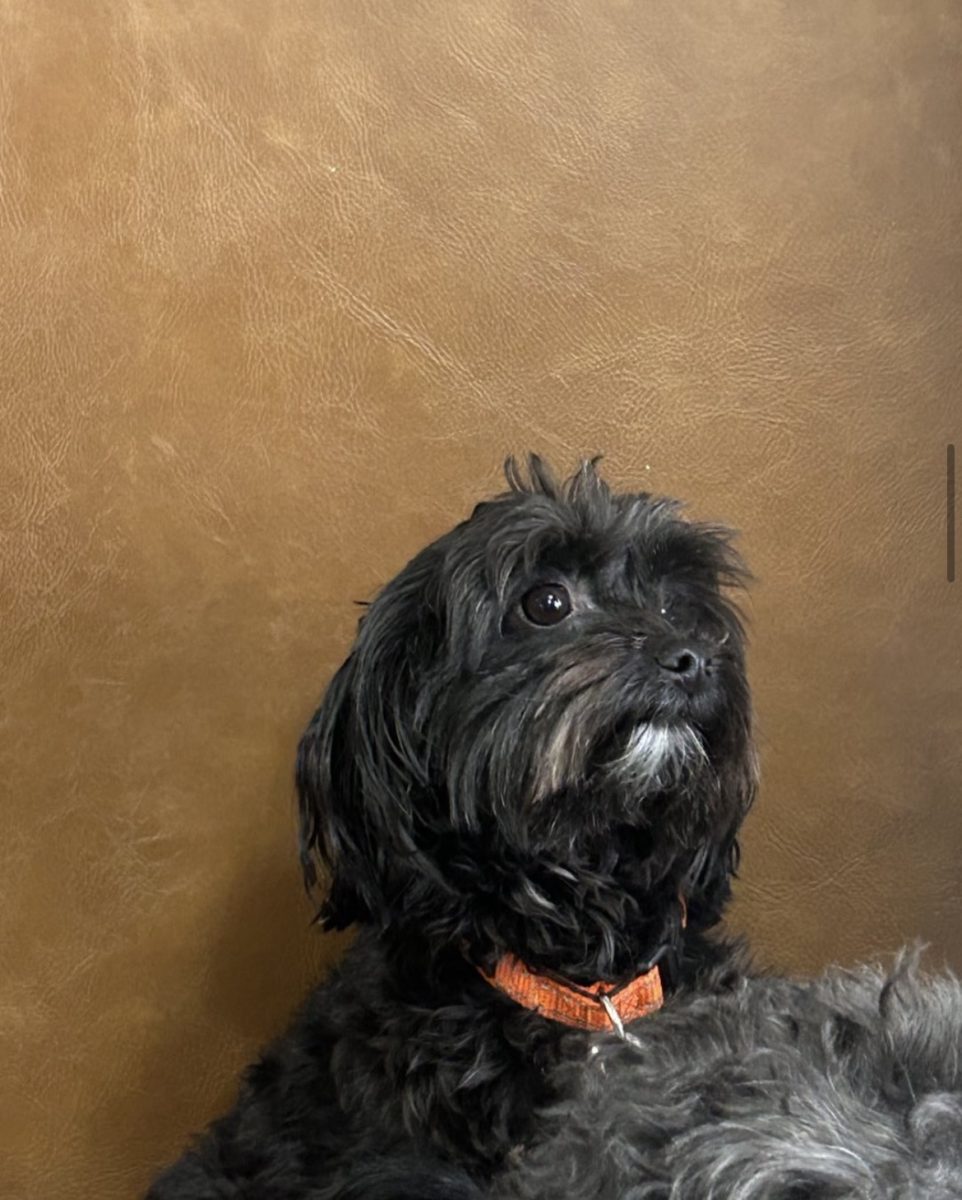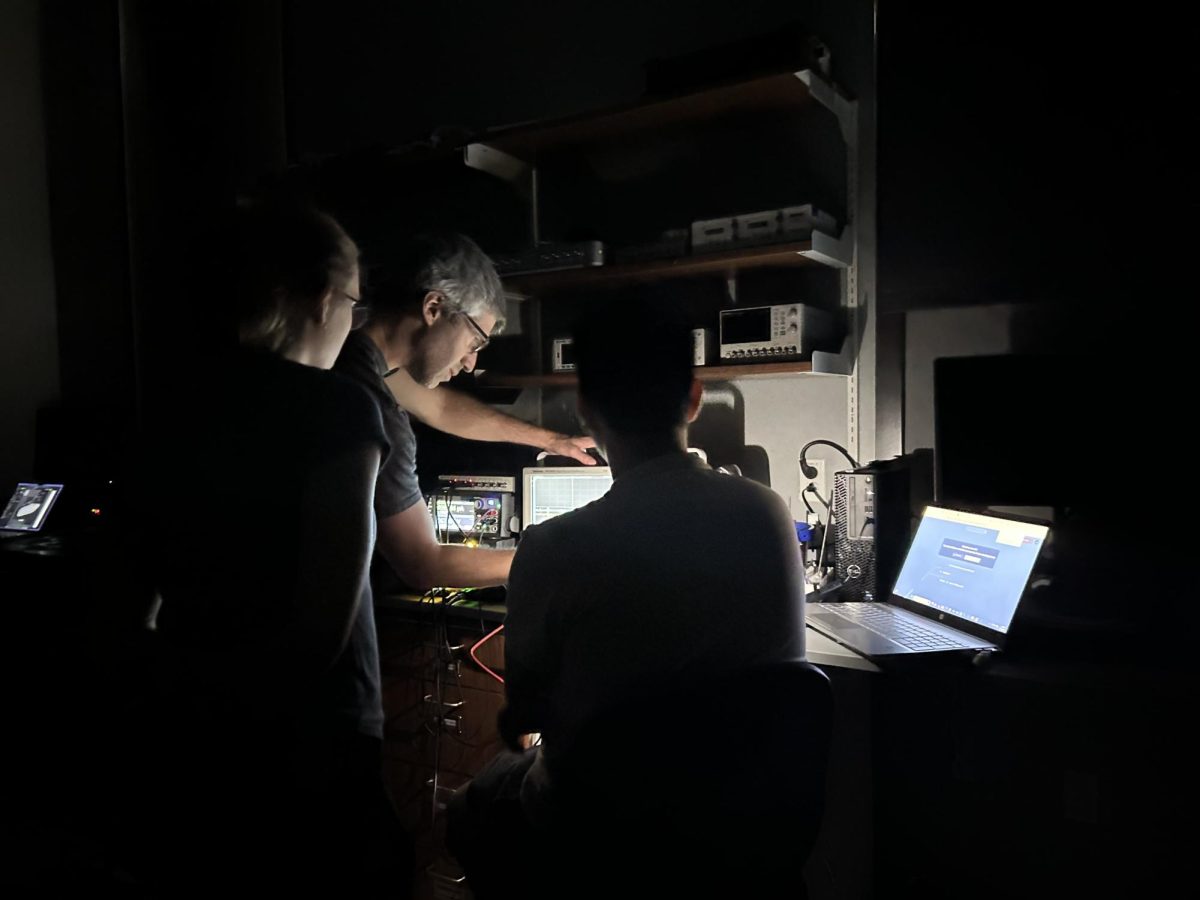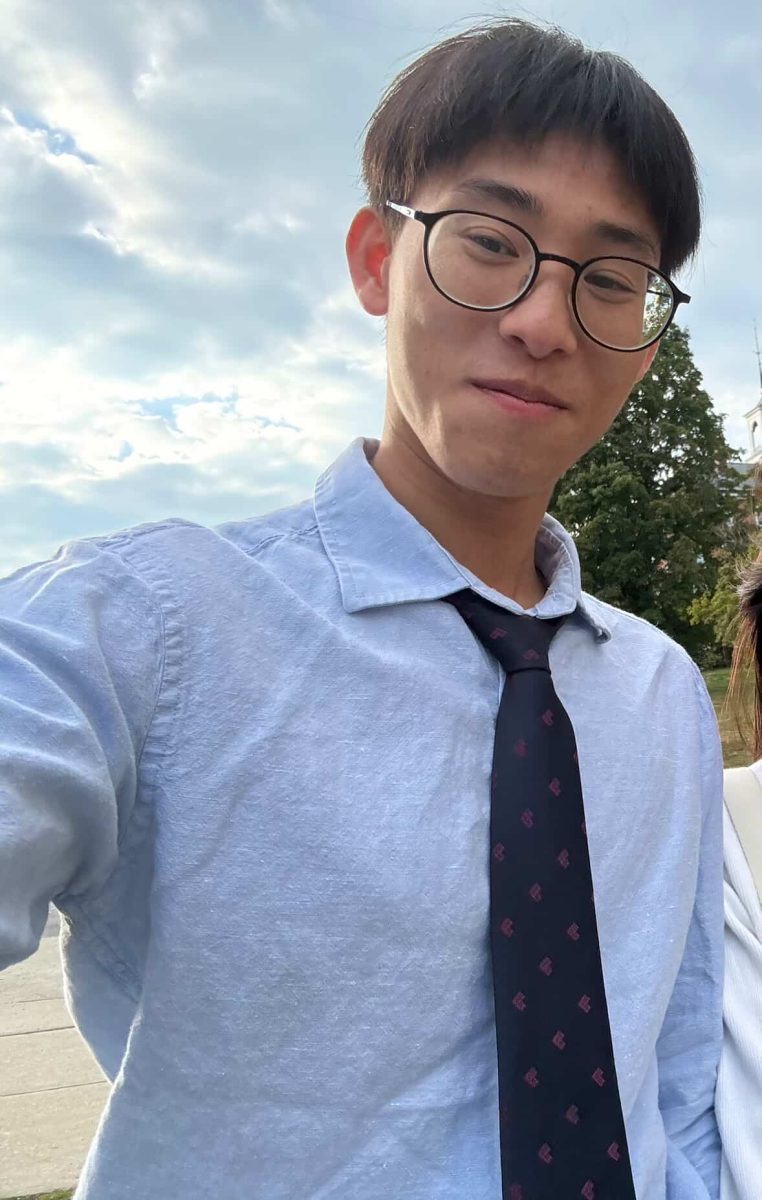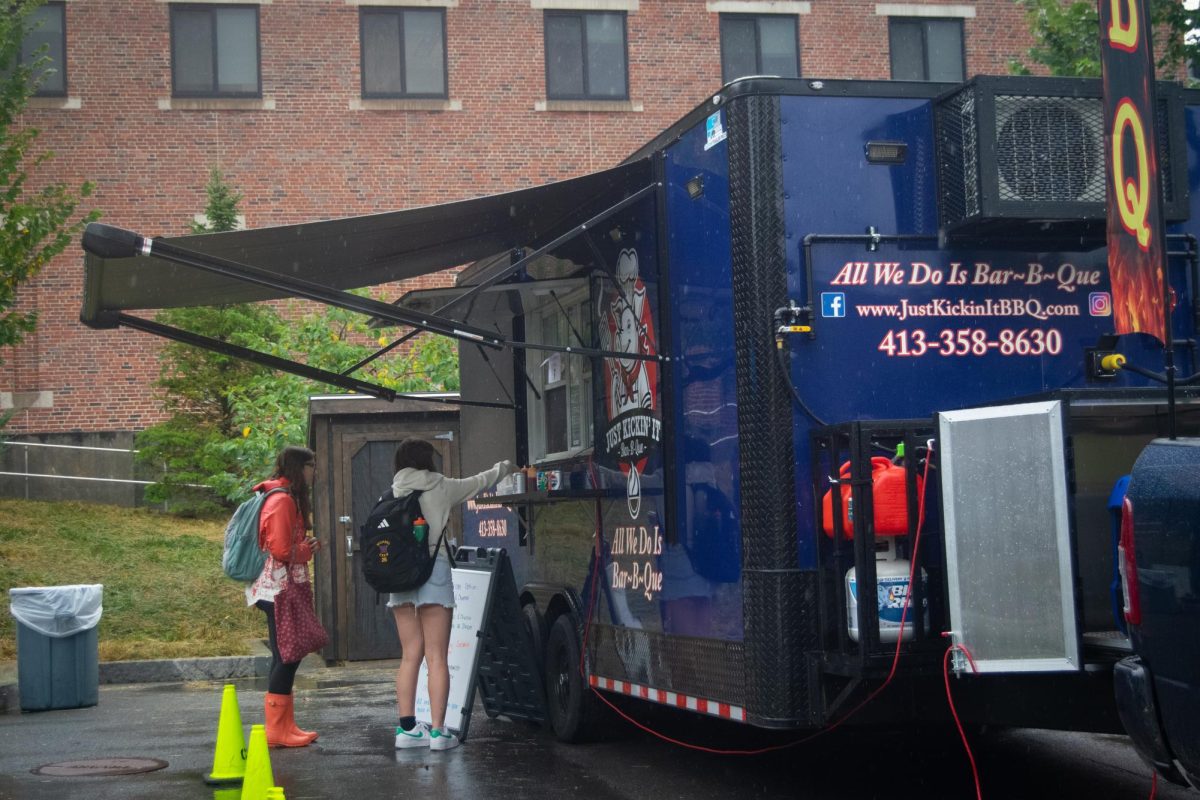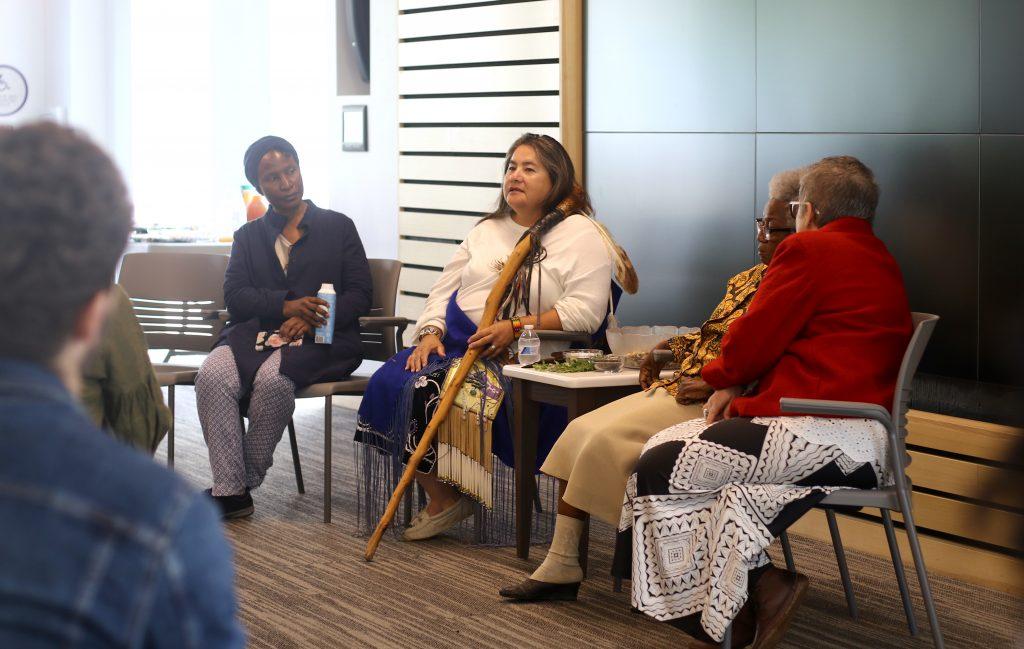
Living testimonies of the restorative and inspiring potential of indigenous wisdom graced the three-part Africana Studies symposium, “Nkisis, Orixás and Ancestors: The Role of Religion, Creativity and Environmental Ethics in the Afro-Atlantic Diaspora” from Sep. 18 to 20. Coordinated by Sterling Brown ’22 Visiting Professor of Africana Studies Rachel Harding, these talks gave members of the College community an opportunity to learn about indigenous wisdom and the long-standing resilience of indigenous people.
“The wisdom of indigenous people is not folkloric, not abstract,” Harding said, “but [it provides an] understanding of how to be human beings in the contemporary world.”
The two main speakers were Louise Wakerakatse Herne – or Mama Bear – the Clan Mother of the Mohawk Longhouse of the Akwesasne people, and Makota Valdina Pinto – or Makota – an elder in the Congo-Angola tradition of the Afro-Brazilian religion Candomblé. Harding and Professor of Humanities Joy James moderated the discussion.
Though they come from different geographical regions, Mama Bear and Makota together had a simple yet powerful message to offer: in our broken, contemporary society, indigenous wisdom can bring regeneration and harmony to communities of all sizes and individuals of all cultures.
With this aim in mind, Mama Bear and Makota sat with 50 people in Weston Hall for a candid sharing of their traditions’ core values, of the suffering their communities have endured through colonial oppression and how indigenous wisdom sustained their people’s sense of freedom, self and understanding of human relationships to others and to nature.
Makota said that at the most foundational level, indigenous wisdom emphasizes having respect for others’ differences and commonalities as human beings.
“The central and principal lessons for me come from a life of thinking and experiencing together with other people and from collective action – that is to say, respecting and interacting with others, with the diversity of life and with all that exists around us,” Makota said in a statement translated from Portuguese by Harding.
Another core component to intergenerational and interpersonal wisdom, Mama Bear explained, is recognizing the implications of current actions on future generations. “We always have to think about how our actions will affect people seven generations ahead of us,” she said.
Equally important, they both noted, is humanity’s relationship to the natural environment.
“There is a beauty in the time and space that we live in and that our ancestors lived in,” Mama Bear said. “I can see my ancestors – through these mountains, through the trees, through these rivers. I can feel their presence.”
This, Harding said, highlights the Mohawk and Candomblé people’s belief that from recognizing humans’ relationship to the natural world, people can create more whole societies. “These [traditions] are examples of how to be a deeply humanistic society that lives not in domination of the natural world but recognizes that we are essentially and absolutely a part of this natural universe,” she said.
For Mama Bear and Makota, these forms of understanding are also crucial for instilling a sense of empowerment, transformation, sovereignty and healing in indigenous people.
“I consider myself free because I am not submissive,” Makota said. “I feel freedom in my heart, mind, body. I claim my freedom.”
Mama Bear echoed these thoughts. “The way our elders lived their lives made us proud as to why we live the way we do,” she said. “We are a culture of accepting the self.”
Holding firm to such beliefs has helped both indigenous groups remain resilient despite the presence of external forces – what Mama Bear calls the “cloak of oppression” – that seeks to eliminate their people and alter their histories through colonial violence, genocide and land-stripping.
“I’m not what [government bodies] want me to be. I’m who I am,” Makota said defiantly.
“Both of these aggregations of these people are folks who have held onto their profoundly compassionate understanding of what it is to be human through many generations of assault,” Harding said.
But through their commitment to their communities and faithfulness to nature, spirituality and intergenerational wisdom, the Mohawk and Candomblé are not bygone traditions. “I am here to let everybody know that we’re not ghosts of the past,” Mama Bear said.
Rather, both Mama Bear and Makota said that indigenous groups around the world who are prosperous and whole could serve as sources of wisdom for modern-day societies.
“We are in a prophetic time,” Mama Bear said. “With racism, gender inequality and the degradation of the environment, the community is in a period of degeneration, pain and even a celebration of death. That’s why people are dying, and shootings are happening… [The U.S.] must be shifted to a culture of celebration, a culture of life.”
To address this need, Mama Bear and Makota suggested the incorporation of indigenous studies into the curricula of higher education institutions. Mama Bear asked students to imagine the possibilities that could come from “the real owners of this land” teaching at the College. “Indigenous wisdom must be brought to the forefront of our thoughts,” she said. “There exists a landscape of wisdom out there… Education isn’t something you spend the rest of your life recovering from.”
With the hopes that students would reconsider the purpose of a college education at the cost of stripping native people of their land, Makota suggested that students constantly ask themselves, “What do I want knowledge for? What am I going to learn? Do you want to have things, or do you want to be in the world?”
James said that in light of such considerations, indigenous studies would deepen the College’s curriculum.
“The collaborations between indigenous studies and other branches of learning would be beneficial for more sophisticated knowledge about historical, contemporary and potential future learning in ethics, environmental justice, religion and spiritual and democratic practices,” James said.
“If one of the priorities that [the College] might set for itself is to help prepare leadership for a democratic America, what we need at this moment is a way to learn from the wisdom and histories of peoples who have held onto a compassionate meaning of human identity and connection to the natural world under great duress,” Harding said.
Regardless, the importance of providing more spaces for sharing indigenous perspectives was clear to all speakers. In the end, Makota said, such spaces should serve as opportunities for communal healing. With such an emphasis on communal experiences of growth, it was only fitting for Makota to close the symposium with a traditional Candomblé song and parting gifts of grains and seeds to those who remained until the end to hear the narratives of two deeply reflective and hopeful indigenous leaders.




